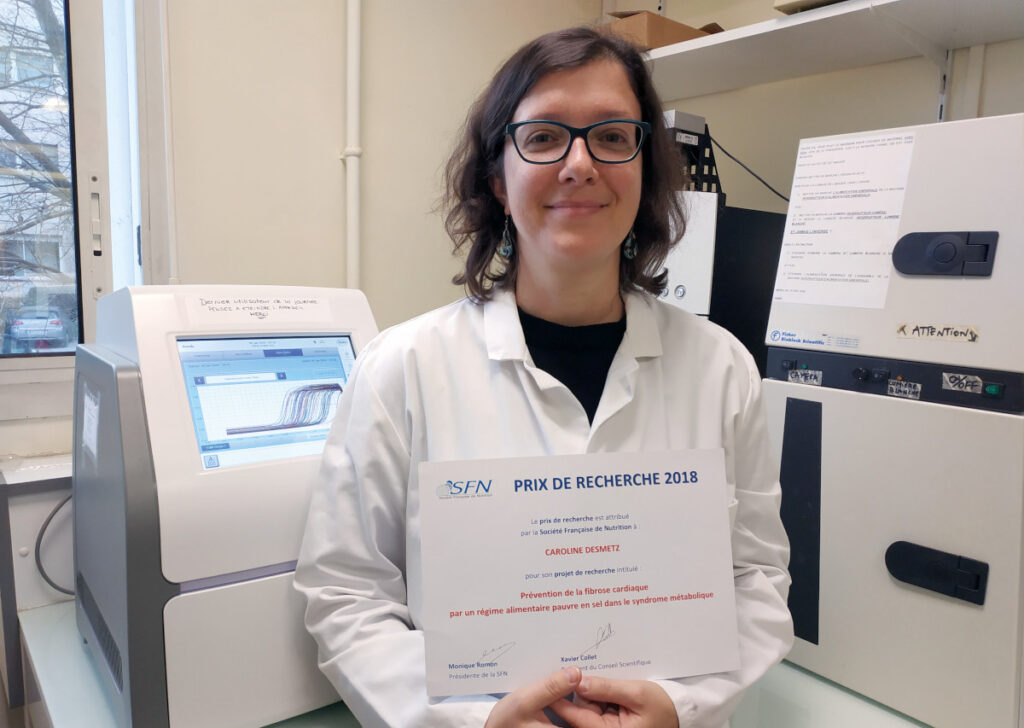[LUM#10] Less salt for a longer life
Less salt for fewer cardiovascular accidents? That is what Caroline Desmetz's research suggests, showing that a low-salt diet reduces the risk of cardiac fibrosis.

In France and across developed countries, one in six men over the age of 40 is affected by metabolic syndrome. This condition combines "high blood pressure with a metabolic disorder such as insulin resistance, which causes type 2 diabetes, or obesity," explains Caroline Desmetz, a lecturer and researcher at the Cardio-Metabolic Biocommunication Laboratory at the Faculty of Pharmacy . "It is the scourge of our societies today."
An irreversible scar
A metabolic syndrome that triples the risk of cardiovascular disease by promoting the development of cardiac fibrosis, or scarring of the heart. "Like skin scarring, this scarring is irreversible; you have it for life. Except that your heart is a muscle that needs to be able to contract in order to function, which the scarring prevents," the researcher points out . Fibrosis is virtually undetectable before the event.
However, prescribing a low-salt diet for metabolic syndrome could prevent these lesions from developing. At least, that is what initial experiments on rats have shown. Rodents with the equivalent of metabolic syndrome but fed a low-sodium diet developed less fibrosis than the same animals that consumed a normal amount of salt.
Salt-sensitive genes
How does salt, or rather the absence of salt, affect the mechanism of fibrosis? Two answers have been identified. Caroline Desmetz and her team first observed in rodents on a salt-free diet "a decrease in the presence of certain immune cells that cause inflammation, damaging the heart muscle and creating lesions."
But the researcher was particularly interested in the effect of a sodium-free diet on the expression of certain genes during a phenomenon that has been little described in the mechanism of fibrosis, called endothelium-mesenchymal transition, which refers to "the transformation of endothelial cells (from blood vessels) into fibroblasts. These cells secrete collagen, which is responsible for fibrosis. "
Research Award from the French Nutrition Society
According to Caroline Desmetz, ongoing experiments seem to confirm that this phenomenon is significantly reduced in animals on low-sodium diets. The next step is to understand "which genes are specifically involved and see if we can modulate them." Last July, Caroline Desmetz was awardeda research prize by the French Nutrition Society, which enabled her to "recruit a master's student and pay for the reagents needed for the experiments," which remain very expensive.
Find UM podcasts now available on your favorite platform (Spotify, Deezer, Apple Podcasts, Amazon Music, etc.).